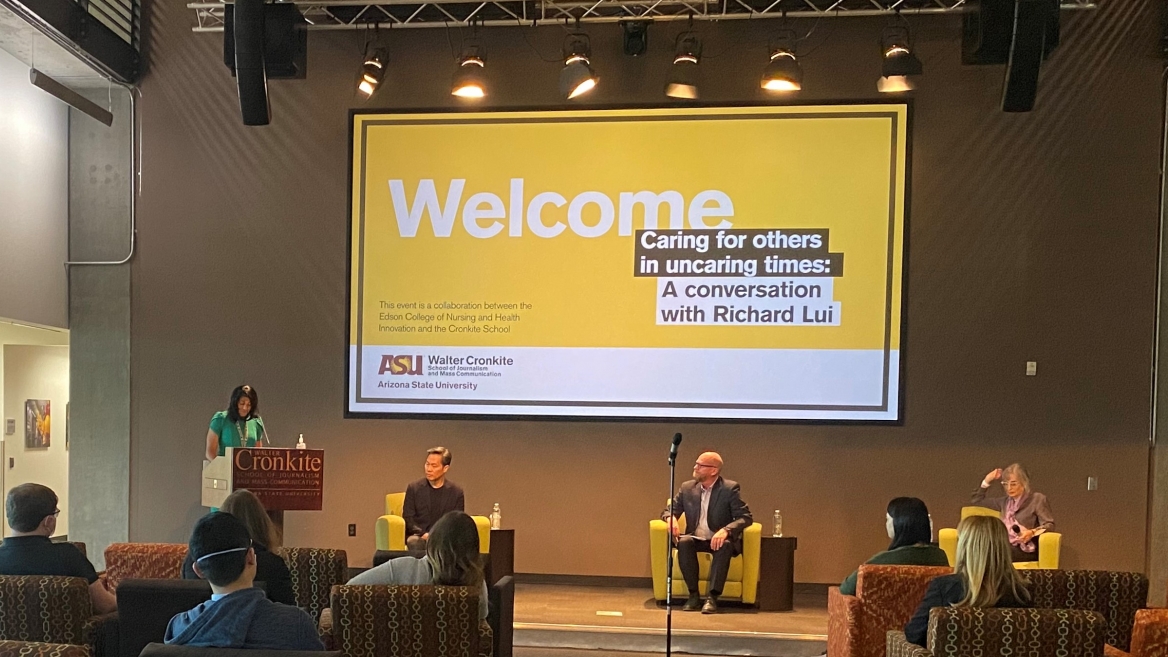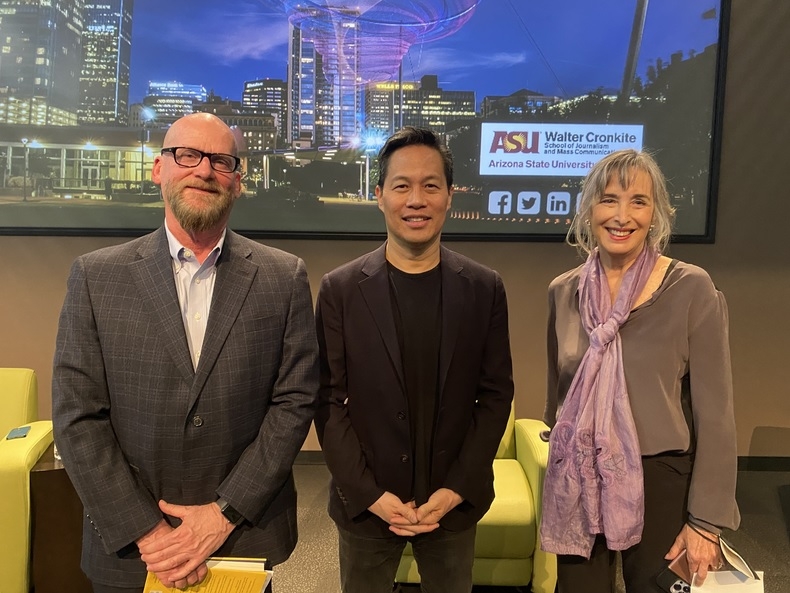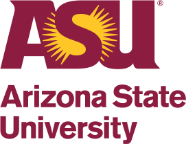
Caring for others in uncaring times
By
—
A comment at a family gathering was the first indication Richard Lui had that something seemed a little off with his father, Stephen Lui.
“I was told that he was forgetting his siblings’ names, which was so unlike him,” Lui said.
The family encouraged his dad to go see a doctor, and he was eventually diagnosed with Alzheimer’s. The senior Lui was determined to fight it.
Richard, a groundbreaking journalist for NBC News, became the first Asian American male to anchor a daily cable news program in 2007, and currently reports and anchors for MSNBC and NBC.
He shared the story of how his father lived with Alzheimer’s and how he and his family stepped in to provide care with students, faculty and the general public Tuesday night at a panel event at Arizona State University.
The panel was co-hosted by ASU's Center for Innovation in Healthy and Resilient Aging (CIHRA) and the Walter Cronkite School of Journalism and Mass Communication.
David Coon — director of CIHRA; associate dean of research initiatives, support and engagement; and professor at ASU’s Edson College of Nursing and Health Innovation — and Julia Wallace, Frank Russell Chair in the Business of Journalism at the Cronkite School, moderated the panel.
Adrienne Fairwell, the general manager of Arizona PBS, introduced the panel and shared her own story of how the disease touched her family.
“It’s still a little fresh,” Fairwell told the audience as she was visibly emotional while talking about her grandmother, who passed away from dementia.
Fairwell and Lui are among the more than 53 million Americans who shared the responsibility of providing unpaid care for family members.
During the pandemic, Lui decided to write a book titled "Enough About Me," which touches on his family’s experience and what he has learned about the power of selflessness through this and other events in his life.
“My dad never complained,” said Lui.
In the beginning, his mother was the primary caregiver, but it quickly became clear she was going to need some help — even if she wasn’t going to ask for it.
And so he was prepared to give up his career in order to be there for his parents.

From left: David Coon, Richard Lui and Julia Wallace.
“I went to my boss and said, 'I’m going to have to take care of my dad, and I can’t work as much as I normally do,'' Lui recalled. "And I thought she was going to say, ‘You’re a great guy, but we don’t have part time in the field for news anchors.’ She didn’t say any of that; she said, 'I’m a long-distance caregiver. Let's put together three or four options.'”
He said that conversation and the “nobility” his boss showed at that moment in figuring out a way for him to work part time changed his life.
Over the next several years, he flew back and forth from New York to California to take his turn caring for his father.
“My dad passed at the end of last year. He was a pastor, and I thought he just wanted one more Christmas with us," Lui said. "We all got to see him and hang out with him.”
Lui says he wasn’t angry when his father died. Instead, he focused on the positives, both personal and professional, that have come from the whole journey.
“I’m doing things creatively as a journalist and as a person that I never would have done without this,” he said.
In addition to the book, Lui has also produced a documentary titled “Sky Blossom” that follows five young people between the ages of 11 and 26 who are the primary caregivers for family members.
Shining a light on caregiving has helped him talk about his own feelings as well.
During the Q&A portion of the panel, when asked by an audience member about ways that organizations can help support employees who are providing care, Lui said to start by asking for resources.
“Now is the time to strike when it comes to organizational selflessness,” he said.
He pointed to the flexibility that many companies provided during the COVID-19 pandemic, like working from home and the interest in employee well-being by checking in with them to see how they’re doing and what they need. He said policies and practices like that should be codified.
Wallace asked what Lui thought was missing from the national conversation and coverage on caregivers.
Lui responded that it’s just not talked about enough, and not only that, but a lot of people don’t self-identify as “caregivers” even though they look after family members or friends.
“There’s not a job that’s more common in America than family caregivers," he said. "We’re talking about 53 million caregivers and a half-trillion dollars in unpaid care. We need to get this into the fabric of stories; it doesn’t have to be a caregiver story to be about a caregiver.”
“We know that unpaid caregivers are the backbone of long-term care in our society, and without them, it would all fall apart,” Coon added.
Coon asked Lui if he could share the toughest and most rewarding part of his time spent caring for his father.
Lui said the toughest was when his dad let him know through eye contact and signature mannerisms that it was time for him to go. Lui said that was something he was not ready to hear — that his father was done fighting.
And the most rewarding?
“Being able to have that conversation without using words, when we can communicate at that level with the people that we care about and love, I think we’re doing OK,” he said.
If you or someone you know is caring for a family member and in need of resources, please visit the Alzheimer’s Association website at https://www.alz.org/dsw. If you are interested in participating in evidence-based programs for caregivers, contact agingsuccessfully@asu.edu.
